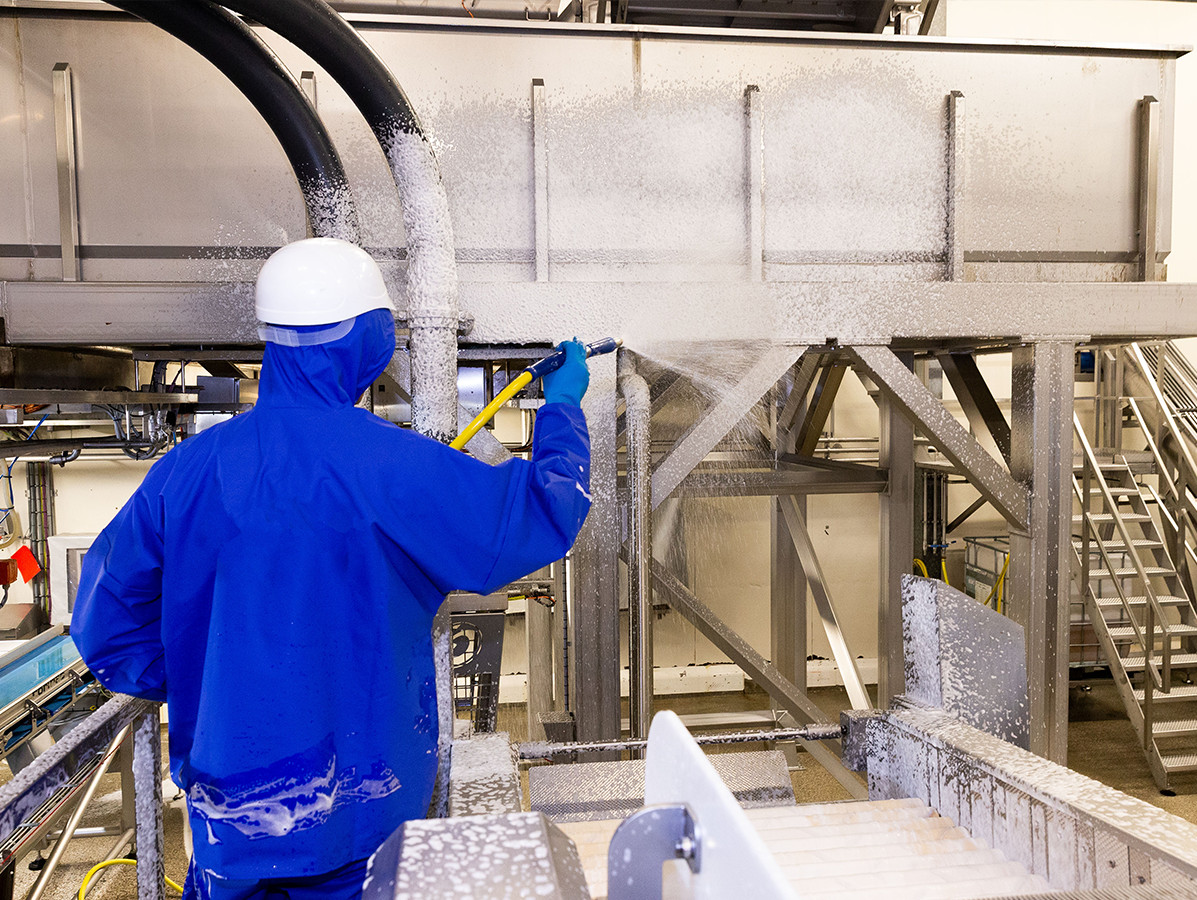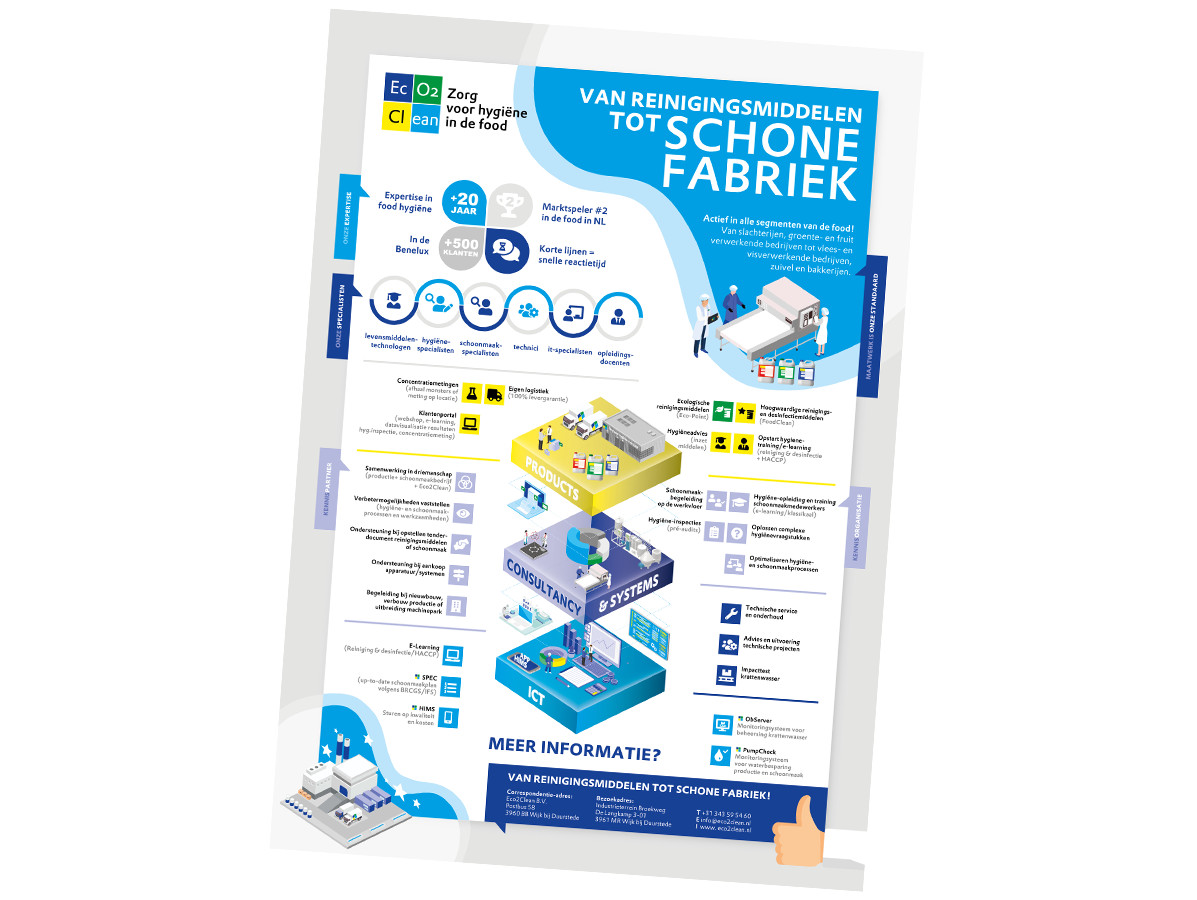
‘Food companies still have little knowledge of good and effective cleaning’, concludes Gert Visscher, director/owner of Eco2Clean. “Knowledge that exists is often quickly lost. That does not benefit ‘food safe production’.
“The causes of the shortage of knowledge”, continues Gert, “are the often rapid changes of cleaning staff, outsourcing of cleaning, which means that a company assumes that it no longer has to think about it itself, and the BRCGS, IFS, NVWA and retail demand that everything has to be properly arranged on paper. At the same time, we see that the need for food companies to get a grip on the organisation, and therefore on the result of the cleaning, is actually growing.”
Eco2Clean has more and more projects in progress regarding advice and support for the organisation of cleaning. “This demand comes form our customers, but also from companies that do not purchase resources form us. What do we advise on? This varies from solving a bacteriological problem, reducing the chemical and water consumption of washers, advice on new construction or renovation plans and optimizing the cleaning process to realizing a clean factory.”
This development led to the division of the company into three business units: Eco2Clean Products, Eco2Clean Consultancy & Systems and Eco2Clean ICT. “By integrating our expertise in different business units, it becomes clearer to the customer which form of support is needed. Based on this, we make a transparent plan of approach. Depending on the client’s needs, I consult our experts from Consultancy or ask my people from Systems and ICT to think along in technical and/or software solutions.”
“A clean factory starts with a good cleaning plan. So we start form scratch, no matter how basic that sounds”, says Visscher. “Thanks to our many years of experience in practice, we know which questions we need to ask, with the aim of making the customer aware of all possible bottlenecks. It takes a lot of discipline and time to keep a cleaning plan up to date. Who is responsible for drawing up the cleaning plan? How is this safeguarded? How does this cleaning plan relate to the quality manual? Without the right people, resources, materials and time it is not possible to carry out the cleaning properly. Look at the people; how is it recorded in practice which cleaner is present and whether he or she has received training? Is good cleaning possible without one of the cleaners speaking Dutch (or English)?”

After the employees have received instructions, the delivery is as agreed and the various necessities are present, the cleaning can start. All machines and items are cleaned as defined in the cleaning plan. “But what if there is no cleaning foreman present? Then it becomes difficult to correct the cleaners and show them how the are supposed to clean. How can this be solved? When can/should there be deviations from the cleaning plan? What do you have to register if you deviate form this plan? When will you notice that? And who determines this?
After the execution of the cleaning and before the start of production it is necessary to have all cleaned machines and items checked by production. The choice of which checks are carried out is based on the food safety risks that apply to the company in question. “But how does the production know what the critical parts are? What if rejects are never reported? Should this be monitored? If an inspection establishes that a machine or item does not meet the set requirements, then it is important to follow this up properly,” Gert explains. “Production may only start if the machines or items that come into contact with products still meet the set requirements. A relevant question here is: is the defect mainly due to poor cleaning or because instructions are unclear/incorrect?”
Once the cleaning plan has been drawn up, Eco2Clean advises to organize a cleaning consultation that takes place on a regular basis. “The foreman of the cleaning department, someone form the production department, the quality department and the technical department always participate in this consultation. We usually attend twice a year. By organising these consultations, the quality of the cleaning is continuously monitored and adjusted where necessary.”
Photos: ©Eco2Clean
Source: Vakblad Voedingsindustrie 2020